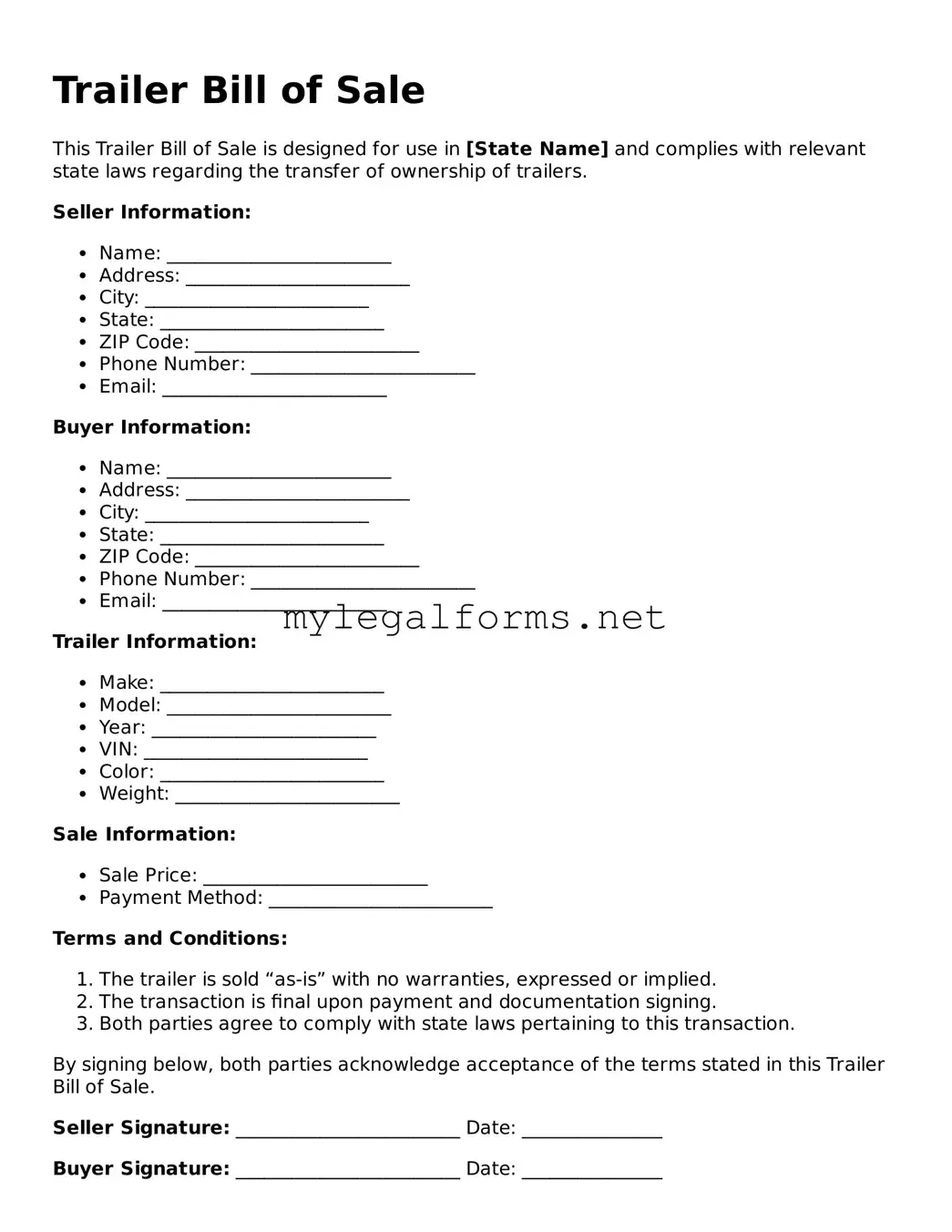Attorney-Approved Trailer Bill of Sale Form
The Trailer Bill of Sale form is a legal document that records the transfer of ownership of a trailer from one party to another. This form serves as proof of the transaction and outlines essential details such as the buyer, seller, and trailer specifications. Understanding its importance can help ensure a smooth transfer process and protect both parties involved.
Launch Trailer Bill of Sale Editor

Attorney-Approved Trailer Bill of Sale Form
Launch Trailer Bill of Sale Editor

Launch Trailer Bill of Sale Editor
or
⇓ PDF Form
Complete the form at your pace — fast
Finish your Trailer Bill of Sale online and download the final version.